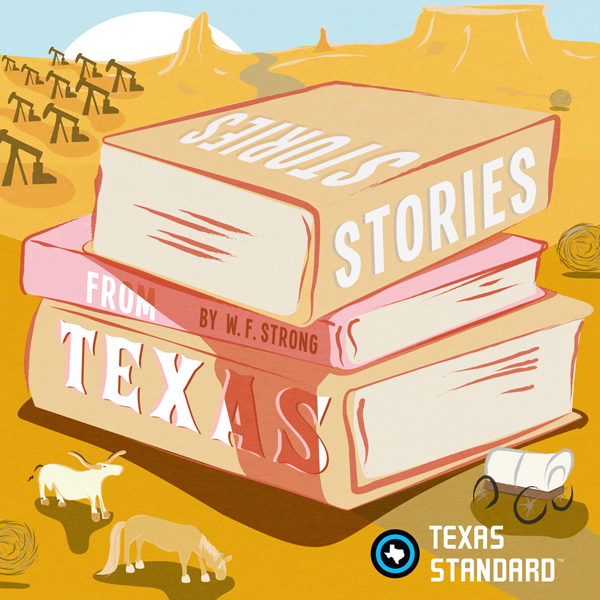By W. F. Strong
The Llano Estacado is an enormous mesa. It covers more than 37-thousand square miles of Texas and New Mexico. On this side of the state border it starts north of Amarillo and ends south of Odessa. But how did it get its name and what exactly does it mean? Turns out, there are about five different theories about that.
Today, the Llano Estacado has been immortalized in art. Just think of this song from Gary P. Nunn: “It’s the Llano Estacado, It’s the Brazos and the Colorado; Spirit of the people down here who share this land!”
One thing all the theories about its origin story agree on is that there’s a reason the name is Spanish. It’s credited at least in part to conquistador Francisco Coronado who called the area “Los Llanos” — the plains. And that’s where the stories begin to diverge.
The most common one is that Llano Estacado means “staked plains” because “estacado” is the past participle of “estacar,” a verb meaning “to stake” or “to stake out.” The belief was that the vast spaces of the mesa were so disorienting that early explorers and settlers needed to leave stakes in the ground to navigate in a straight line, and to have a direct line of retreat should they need it. Even Coronado’s Native American guides would shoot an arrow straight ahead and then walk to the arrow, and repeat the process over and over to keep from going in a circle.
But others say that in the time of Coronado, the term “estacar” had a different meaning. It meant “palisaded plains,” or “stockaded plains,” looking like a fort. If you approach the caprock as Coronado did, and as I have done myself, west of Amarillo along the Canadian breaks, from a distance of 20 miles, the rise onto the caprock does indeed look like a fortress stretching as far as one can see.
But here’s another bit of the puzzle — the great geographer and historian John Miller Morris tells us that Coronado never wrote the words “Llano Estacado.” But Coronado did leave us a detailed description of Lo Llano in a letter to the King of Spain: “…there is not a stone, nor bit of rising ground, nor a tree, nor a shrub, nor anything to go by.” This brings us to Morris’s most compelling theory about the name. With no trees and shrubs available, explorers and hunters needed to “stake out” or hobble their horses at night or they’d be gone in the morning.
All of the theories have their appeals. But I doubt the origin of the name will ever be settled. Just like its name, the infinite flat land, the ocean of grass that once supported millions of buffalo, remains a romanticized landscape of mystery to this day.
There’s a sublime book by Shelley Armitage called Walking the Llano. Ms. Armitage has lived on the Llano off and on most of her life and her book reminds me of magical works like Desert Solitaire and Goodbye to a River. She writes, “There’s been no poet of these plains . . . but there is a poetry of the plains. This part of the Llano exists . . . as a shape of time, requiring the rhythm of a habit of landscape, of the repetition of experiencing.” She quotes Mary Austin, “It’s the land that wants to be said.”
Ms. Armitage also ran on the Llano. She writes, “The running taught me something. I began to learn that the land is lyric. I could feel the rhythm of the land come into my legs, up into my chest and heart, and out my mouth as breath. Later it came out as writing.” Perhaps Shelley Armitage is the very poet of the plains she claims does not exist.
Armitage also tells of the advice of an elder of the White Mountain Apaches, who said,
“Wisdom sits in places. It’s like water that never dries up. . . You must remember everything about [places]. You must learn their names. You must remember what happened at them long ago. You must think about it and keep on thinking about it.
Then your mind will become smoother and smoother. You will walk a long way and live a long time. You will be wise.”
We must do this for the Llano Estacado, in poetry and prose and song.





